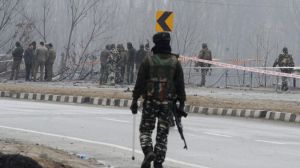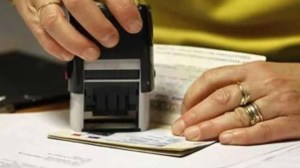Finance Commission pe Chandrababu ko gussa kyon aata hai?
New Delhi, August 23: While the Sultan of Cyberabad has made waves by taking up the cause of `progressive' states that have lost out in th...

New Delhi, August 23: While the Sultan of Cyberabad has made waves by taking up the cause of `progressive’ states that have lost out in the allocations made by the Eleventh Finance Commission (EFC), a closer look at some of the numbers shows much of this is simply hype. Hype from Hyperabad, you may be forgiven for saying in this season of excess. And though states like Maharashtra have lost out quite a bit, much the same logic applies to most of Naidu’s co-agitators like Haryana, Punjab, Kerala, and so on — there are silver linings as far as Maharashtra’s concerned also. But more of that later.
In a nutshell, the EFC’s recommendations, made in June, set out how taxes collected by the Central Government are to be divided between states for the next five years. The EFC decided to change the parameters for sharing revenue between states a bit — states whose growth had slipped a lot have got a marginally larger share, for instance — and this is what has upset Naidu and his gang.
Even this, however, is over-stated. While press reports out of Naidu’s bailliwick, Hyderabad, put the annual `loss’ to Andhra Pradesh at Rs 700-800 crore this year alone, the actual `loss’ — due to the reduction in Andhra’s share in the kitty — is a mere Rs 150 crore (see graphic on P 9). And, in any case, these `loss’ calculations don’t take into account the fact that the EFC is giving away a larger share of the Central Government’s revenue to the states — so even if the percentage share of each state within this has gone down, the actual loss in states like Andhra is minimal. Andhra, for instance, will get Rs 4,163 crore this year as against Rs 3,849 crore of tax devolution in 1999-00, Haryana will get Rs 510 crore against Rs 488 crore, Tamil Nadu Rs 2,911 crore compared to 2,762 earlier, and so on.
In Maharashtra’s case, it is true, the losses are quite large. With the Finance Commission cutting its share of the tax kitty from 6.23 per cent to 4.63 per cent because it grew the fastest (and hence needs less tax dole), it will get just Rs 2,504 crore this year as against Rs 2,729 crore last year — and that doesn’t take even inflation into account.
Nor is even the pure-tax picture all black. The Finance Commission has recommended that states be given back the power to tax textiles, tobacco and sugar — this is being fought for at other fora, and once done, this could hike Maharashtra’s own tax revenues by a fifth, and more.
Even the money, however, is not the real issue. How can it be? In the case of Andhra, for instance, Rs 150 crore a year is surely chicken-feed against Andhra’s annual revenues of Rs 24,000 crore, and the Rs 1,38,000 crore of investments that people have planned to make in the state?
The problem with the commission’s recommendations is different. When it was set up, it found that the way the finances of the state governments were rapidly deteriorating, their total deficit would have touched a whopping Rs 307,000 crore by 2004-05, and that there was no way the Central Government could have given them these funds, even if the government was run by a United Front kind of coalition of states.
So, it decided that, while a larger share of Central Government taxes would be given to the states — 29.5 per cent as compared to 28 per cent earlier — the states would have to do their bit as well. User-charges on irrigation, for instance, would have to be raised by between 10 and 25 percent each year, to cover just the bare basic maintenance costs of irrigation systems.
Similarly, state electricity boards would have to begin charging more realistic rates — all SEBs lose a collective Rs 22,346 crore today — and the state governments would have to stop subsidising them endlessly. For starters, they would have to charge a somewhat higher, though still subsidised, interest on outstanding loans to these SEBs. And, yes, states would just have to start increasing their own tax collections.
This, the apolitical economists-administrators who manned the commission didn’t realise, was enough to upset even a half-populist chief minister, much less the likes of Naidu in Andhra, Chautala in Haryana and Badal in Punjab. The Finance Commission argued, for instance, that Andhra would have to raise around Rs 140 crore extra in 2000-01 from the power and transport sector, and around Rs 260 crore by 2004-05; Maharashtra around an additional Rs 228 crore this year, going up to Rs 470 crore by 2005, and so on.
Naidu, poor man, has already deferred a sharp hike in power tariffs in his state for 3 months now due to a massive agitation. Given the enormity of the task ahead for Naidu and his ilk, it’s much better, isn’t it, to try and shift the blame to a Central government and accuse it of `robbing’ you of your fair share in the overall tax kitty? Brilliant. Let’s see if it flies with the electorate.
>
Photos





- 01
- 02
- 03
- 04
- 05


























